- News for Kids
- Dominican Republic
- Netherlands
- New Zealand
- Papua New Guinea
- Philippines
- Puerto Rico
- South Africa
- South Korea
- Switzerland
- United Arab Emirates
- United Kingdom
- United States of America
- 7 Continents
- Australia/Oceania
- North America
- South America
- Chinese New Year
- Elections 2024
- Olympics 2024
- European Union
- Trivia & Quizzes
- Solar System Quiz
- Travel Reviews
- Travel Health
- Travel Links

Competition 2024
- Winners 2023
- Winners 2022
- Winners 2021
- Winners 2020
- Winners 2019
- Request A Correction
Greece Facts
Our Greece Facts for Kids provide interesting and fun facts about the country in Southern Europe, her geography, Greece landmarks and attractions and so much more.
Here are some interesting Facts about Greece which were choosen and research ed by kids especially for kids.
Greece Facts for Kids
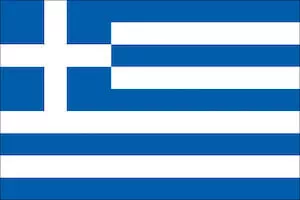
- Population : about 10.5 million people live in Greece (2022)
- Capital : Athens with 3.1 million inhabitants
- Name : Hellenic Republic; locally also referred to as Ellas or Ellada
- Government : Parliamentary Republic
- National Language : Greek
- Religion : mainly Greek Orthodox over 80%
- Literacy : 97% of the Greek population aged 15 and over can read and write
- Currency : 1 Euro = 100 cents (before 2001: Greek drachma )
- National Anthem : Hymn to Liberty (The Greek national anthem is the longest in the world and the original text of all anthems)
- National Holiday : 25 March (Independence Day)
- National Symbol : Greek cross (white on blue background) and the national colours: blue and white
- History : The first evidence of people living in the region date back to 270,000 BCE on the Chalkidiki peninsula. Greece is considered as the cradle of Western civilisation. Kingdoms and city states, so called polis , spread across the region from about 800 BCE. The first Olympic games were held in 776 BCE. The Athenian Empire was at its peak around 450 BCE, this is when many of the Greek monuments were built. Greece is one of the earlier members of the European community, joining in 1981 in what today is the European Union.
Greece Facts | Greece Geography
- Greece is a country in southeastern Europe. The country is situated on the Balkan peninsula.
- The country shares land borders with four countries: Albania, North Macedonia, Bulgaria and Turkey. Please note that the name Macedonia was disputed by Greece and the country to the north of Greece changed its name to North Macedonia in February 2019
- Greece is a mountainous country as you can see on the map. Mountains cover 80% of the country. The two major mountain ranges are the Pindus and the Taurus mountains.

- Click here for a larger map and satellite images. -
- Greece is located in the Mediterranean Sea. The Greek coastline borders the Ionian Sea and the Aegean Sea as well as the Libyan and Crete Seas in the south.
- The country consists of the mainland with two peninsulas called Peloponnese (in southwestern Greece) and Chalkidiki (in northeastern Greece).
- Greece also includes an archipelago of about 6,000 islands with Crete being the largest island.
- Greece has a mild and temperate climate with wet and colder winters and hot and dry summers.
- Greece is slightly smaller in size than the state of Alabama/USA.
Facts about Greece Geo Superlatives
- Athens is known as the oldest capital city in Europe . Athens is the southernmost capital city on Mainland Europe. The city is named after Athena, the Greek goddess of wisdom.

- Greece has the longest coastline in the Mediterranean with 13 676 km/ 8 498 miles and one of the longest coastlines in the world.
- Crete is the largest island of Greece.
- The Corinth Canal is 6 km/ 3.7 miles long and shortens the voyage across the isthmus of Corinth by 325 km/ 202 miles.

- Greece is known to possess one of the largest merchant fleets in the world. The harbour of Piraeus in Athens is the largest container port in Greece.
- The longest river in Greece is the river Haliacmon with 297 km/ 185 miles.
- Greece's highest mountain is Mount Olympus . The mountain's Mytikas peak is the highest peak with 2,917 m/ 9,570 ft.

- Lake Trichonida is the largest lake in Greece. It is located north of the city of Patras.
- Greece is the third largest olive oil producer in the world - after Italy and Spain.
Greece Facts Landmarks and Attractions
There are 18 UNESCO world heritage sites in Greece.
Among the most well known monuments of Ancient Greece are the Acropolis in Athens and the Parthenon temple, the Sanctuary of Delphi, the ruins of the Olympic stadium in Olympia and the Shrine and Theatre of Asklepios in Epidaurus.
Here are some images of the most well known Greek landmarks.

Please let us know if you have some more info, we plan to add more info here shortly.
Besides the ancient Greek monuments, Greece is known for its scenic landscapes with picturesque villages and towns such as Oia on the island of Santorini and stunning beaches such as Elafonissi Beach on the island of Crete.

The windmills on the island of Mykonos were built in the 16th century and are a prominent landmark. Mykonos, one island of the Cyclades is amongst the windiest places in Greece. The power of the wind was mainly used here to mill grains such as wheat.

Greece Facts | Greek People
About one third of the population of Greece live in the capital city Athens. The majority of Greeks (80%) live in urban centres.
Athens and Thessaloniki are the biggest cities in Greece. Only a few other cities have more than 100,000 inhabitants, these include Patras, Heraklion and Rhodes. The city of Athens has a modern and efficient public transport system and a Metro or rapid transport system. The cities Athens and Thessaloniki are connected by a speed train called the "Hellas Sprinter".

The Greek enjoy following traditions and customs such as folk music and dances. The Sirtaki is one of the most famous dances around the world and also often performed for tourists.

In Greece, children go to primary or elementary school for six years, similar to the UK. Public school education is free of charge and includes the supply of free textbooks. Schooling is compulsory until Grade 9 or the age of 15. Greek pupils learn at least one foreign language, usually English is the first foreign language for the pupils while French or German can be studied as the second foreign language.
Soccer is the most popular sport in Greece but many people also enjoy watersports or athletics.
Greece Facts | Greek Language
Καλημέρα! pronounced as Kaliméra! means 'Good Day!' in Greek. The Greek language has the longest history of any of the Indo-European languages and written records date back about 3,500 years. See how the letters are written in printed writing and cursive writing.
The Greek alphabet has letter 24 letters. Here is how to pronounce the letters.
Many Greek words have been introduced in other languages. Some of the Greek words that we use in the English language are: mathematics, physics, athletics, telephone, politics, academy, democracy and geography.
Greece Facts | Greece Economy
Greece has one of Europe's highest unemployment rates with more than one in every four Greeks being unemployed. Most people work in the services sector and were affected strongly by the Covid-19 pandemic.
Tourism, food and textile manufacturing are among the main business sectors in Greece. One third of the Greek population work in the tourism sector.

Olives, tomatoes as well as wheat, barley and potatoes are among the main agricultural products of Greece.
Italy and Germany are Greece's biggest trading parters.
Major natural resources include iron-ore, petroleum, zinc, nickel, salt and marble.
Greece Facts | Food in Greece
The Greek cuisine is full of aroma! Fresh fruit and vegetables and seafood dominate most dishes. Spices such as oregano, thyme, mint or rosemary are added to most Greek dishes. Olive oil is used in most dishes or for dipping bread.
Mezedes are snacks that can be eaten before meals or enjoyed with drinks at the local restaurants or tavernas .

Popular food in Greece:
- Choriatiki salata : This 'village' salad is what we know all over the world as 'Greek salad', made with plenty of tomatoes, cucumbers, olives and feta cheese. Usually eaten with bread not with pita ;-)
- Feta cheese : white soft cheese made from goats milk
- Tsatsiki: dip or thick sauce made with Greek yoghurt and cucumbers, garlic, olive oil and spices
- Moussaka : layered dish with aubergines (also called eggplants or brinjals) and potatoes and creamy sauce
- Spanakopita : filo pastry dish with a spinach and feta filling

- Souvlaki : skewers of marinated meat, usually eaten as fast food
- Pastitsio : pasta dish with minced meats and white sauce, similar to the Italian lasagna
- Dolmades : little parcels of rice that has been mixed with vegetables and spices and that are wrapped in vine leaves

Greece Facts | Did you know?
Greece still has a royal family. However, King Constantine II does not have any power in governing the country as the monarchy was abolished in Greece in 1974.

The royal family includes King Constantine II, born in 1940, Queen Anne-Marie, their five children and nine grandchildren.
Did you know that Constantine II is an avid sportsman? He took part for Greece in the 1960 Olympics when he achieved a gold medal in sailing before he ascended the throne in 1964. By the way, Constantine II is also the younger brother of Queen Sofia of Spain.
Popular Pages
Useful resources for greece facts.
This Greece facts page was last updated on 24 June 2022. Many Thanks go to Vail Gousdova from Greece for the corrections!
- Angela King & Brad Cole. Geoscience News and Information. "Greece Map and Satellite Images." Geology.com Last accessed 24 June 2022
- Central Intelligence Agency. "Greece". CIA World Fact Book . Last updated 21 June 2022. Last accessed 24 June 2022
- Greek National Tourism Organisation. "Places to Go". VisitGreece . Last accessed 24 June 2022
- Elena Paravantes. "The Best Authentic Greek Salad". OliveTomato . Last accessed 24 June 2022
- Greek Royal Family. "Media Center" The Greek Royal Family. Last accessed 24 June 2022
Image Credits on Greece Facts page: Shutterstock.com and wikipedia commons
Return from Greece Facts to Kids-World-Travel-Guide Homepage
Competition 2024 is open!

Events & Celebrations
Organisations, games & quizzes, travel tips, competition, recent articles.
Facts about Bulgaria for Kids | Bulgaria Facts | Geography | Travel
Jun 28, 24 07:49 AM
Facts about Monaco for Kids | Europe facts for kids | Travel | Monaco
Jun 24, 24 10:23 AM
Mexico Facts for Kids | Mexico Attractions | Food | People | Geography
May 30, 24 04:44 AM
Europe Facts

Countries in the Mediterranean
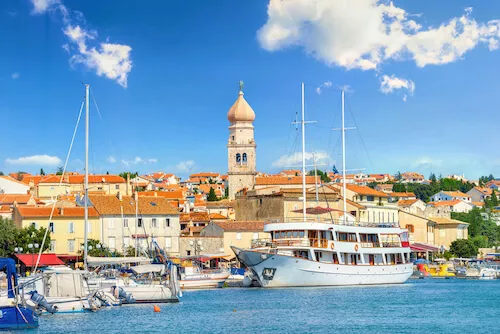
More about Countries in Europe
Winning Essays 2021

Like us on Facebook
Kids World Travel Guide
Brilliantly
Content & links.
Verified by Sur.ly
©Kids-World-Travel-Guide.com 2010-2024 | Created by Regina Gräff and KidsWorldTravels
All rights reserved | Privacy Policy | Disclaimer
Find Greece's travel content online. View one of our printed brochures below.
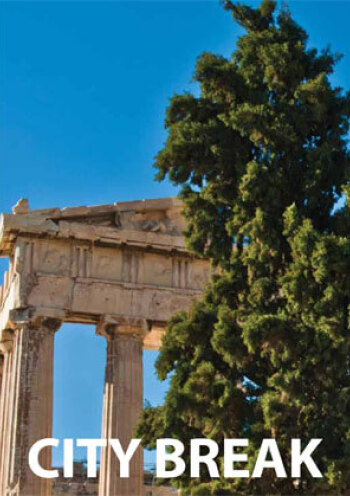
Mice in Greece
A 2,000-year Journey into the Light of Christianity

Across the Borders | advenTOUR
You'll need JavaScript enabled to experience the full functionality of this site. Please enable JavaScript by following the instructions at enable-javascript.com .
Sorry, the browser you're currently using is not supported by this site. Please upgrade your browser by following the instructions at browser-update.org .

Tourism Leaflet — Ancient Greece (Years 5-6)
Write a review

Choose your format:
Save to Your Lessons
Save to Homework
Share resource
Your download limit has been reached!
Check out our FAQs for more info.
Encourage children to consolidate their learning about Ancient Greece with this worksheet. They must create a tourism leaflet to advertise some of the key historical sites from Ancient Greece. The worksheet provides a list of locations for children to choose from, as well as instructions and an example leaflet.
- Key Stage: Key Stage 2
- Subject: History
- Topic: Ancient Greece
- Topic Group: Civilisations
- Year(s): Years 5-6
- Media Type: PDF
- Resource Type: Activities & Games
- Last Updated: 24/10/2023
- Resource Code: H2WAT457
Related Topics:
Other Teachers Downloaded...

Ancient Greece — Key Places Map (Years 5-6)
- Ancient Greece
- Key Stage 2 History


Ancient Greece Timeline (Years 5-6)

Ancient Greece Settlement Location (Years 5-6)

Ancient Greece — Government (Years 5-6)

Ancient Greece — Athens or Sparta? (Years 5-6)

Ancient Greece — Houses, Facts and Opinions (Years 5-6)
No reviews (yet!)
Related Resources

Geography of Ancient Greece Video (Years 5-6)

Ancient Greece — City States (Years 5-6)

Ancient Greeks — Anagrams and Wordsearch: Foundation (Years 5-6)

Ancient Greeks — Anagrams and Wordsearch (Years 5-6)

Tourism Leaflet — Mayan Civilisation (Years 5-6)
- Mayan Civilisation

Ancient Greece — The Peloponnesian War Gap Fill (Years 5-6)

Ancient Greece — Explore a Typical Home (Years 5-6)

Tourism Leaflet — Ancient Egypt (Years 5-6)
- Ancient Egypt
Cookies are disabled on your browser. This means some features of the site won't be fully available to you.
CGP uses cookies to give you a smooth shopping experience and to help us understand how well our site is working. To agree to us using all cookies, click 'Accept', or to reject optional cookies click 'Customise'.
Accept cookies Customise cookies
Greece has the longest coastline in Europe and is the southernmost country in Europe.
Greece has the longest coastline in Europe and is the southernmost country in Europe. The mainland has rugged mountains, forests, and lakes, but the country is well known for the thousands of islands dotting the blue Aegean Sea to the east, the Mediterranean Sea to the south, and the Ionian Sea to the west.
The country is divided into three geographical regions: the mainland, the islands, and Peloponnese, the peninsula south of the mainland.
The Pindus mountain range on the mainland contains one of the world's deepest gorges, Vikos Gorge, which plunges 3,600 feet (1,100 meters). Mount Olympus is Greece's highest mountain at 9,570 feet (2,917 meters) above sea level. Ancient Greeks believed it was the home of the gods . Mount Olympus became the first national park in Greece.
Map created by National Geographic Maps
PEOPLE & CULTURE
Family life is a very important part of life in Greece. Children often live with their parents even after they get married. Greeks live long lives and it is thought that their varied diet of olives, olive oil, lamb, fish, squid, chickpeas, and lots of fruits and vegetables keep them healthy.
Nearly two-thirds of the people live in large cities. Athens is the largest city, with over 3.7 million people crowding the metropolis. Nefos, the Greek term for smog, is a big problem in Athens. The Parthenon, the temple to goddess Athena atop the Acropolis, is deteriorating due to pollution and acid rain.
Olive trees have been cultivated in Greece for over 6,000 years. Every village has its own olive groves.
Most of the country was forested at one time. Over the centuries, the forests were cut down for firewood, lumber, and to make room for farms. Today, forests can be found mainly in the Pindus and Rhodope ranges.
Greece has ten national parks and there is an effort to protect natural and historic landmarks. Marine parks help protect the habitats of two of Europe's most endangered sea creatures, the loggerhead turtle and monk seal. The long coastline and clear water make Greece an ideal location to spot sea stars , sea anemones, sponges, and seahorses hiding in the seaweed.
The Greek landscape is covered by maquis, a tangle of thorny shrubs that don't need a lot of water. These plants include fragrant herbs such as thyme, rosemary, oregano, and bay and myrtle trees. Bird watching is popular in Greece where geese, ducks, and swallows stop over during their migration from Africa to Europe.
Greece abolished their monarchy in 1975 and became a parliamentary republic. Under the new constitution, there is a president and a prime minister. The prime minister has the most power, and is the leader of the party that has the most seats in the parliament. The president selects cabinet ministers who run government departments.
The parliament, called the Vouli, has only one house with 300 members who are elected every four years. Greece became part of the European Union in 1981.
Percy Jackson and the Olympians is now on Disney+.
The first great civilization in Greece was the Minoan culture on the island of Crete around 2000 B.C. Wall paintings found at the ruins of the palace Knossos show people doing backflips over a charging bull. The Minoans were conquered by the Myceneans from the mainland in 1450 B.C.
During ancient times the country was divided into city-states, which were ruled by noblemen. The largest were Athens, Sparta, Thebes, and Corinth. Each state controlled the territory around a single city. They were often at war with each other.
Athens became the most powerful, and in 508 B.C., the people instituted a new system of rule by the people called democracy. But during that time, only men could vote!
The first Olympic Games were held in the southern city of Olympia in 700 B.C. to honor Zeus, the king of the gods. Only men could compete in the events such as sprinting, long jump, discus, javelin, wrestling, and chariot racing. The games were banned by the Romans in A.D. 393, but began again in Athens in 1896.
Greece was ruled by foreigners for over 2,000 years beginning with the Romans conquering the Greeks in the 2nd century. Then, after almost 400 years under Turkish rule, Greece won independence in 1832.
The Walt Disney Company is majority owner of National Geographic Media.
More to explore
U.s. states and territories facts and photos, destination world.
- Terms of Use
- Privacy Policy
- Your California Privacy Rights
- Children's Online Privacy Policy
- Interest-Based Ads
- About Nielsen Measurement
- Do Not Sell My Info
- National Geographic
- National Geographic Education
- Shop Nat Geo
- Customer Service
- Manage Your Subscription
Copyright © 1996-2015 National Geographic Society Copyright © 2015-2024 National Geographic Partners, LLC. All rights reserved
folk dancers
Greek Islands
Acropolis of Athens
(c) Can Stock Photo / PeterHermesFurian
Coat of arms.

National Animal

National Flower

Bear's Breech
The above video is from a third-party source. We accept no responsibility for any videos from third-party sources. Please let us know if the video is no longer working.
Click the Buttons to Explore Further

Books About Greece
Disclosure: the books contain affiliate links. if you click through and make a purchase, we receive a small commission at no extra charge to you., thank you for supporting globe trottin' kids and our global education mission..
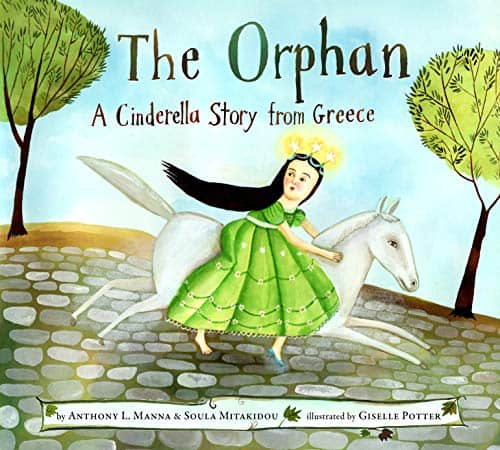
See also Amarandi's Greece 4 Kids 2!
My Dad's site...
- International
- Education Jobs
- Schools directory
- Resources Education Jobs Schools directory News Search

Travel Brochure Template
Subject: French
Age range: 7-11
Resource type: Worksheet/Activity
Last updated
15 March 2019
- Share through email
- Share through twitter
- Share through linkedin
- Share through facebook
- Share through pinterest

Suitable for KS2, this two page resource can be used in Geography; French/German/Spanish lessons or just as an end of year activity to research the destination of choice.
The resource is in .pdf (not editable) format.
Thank you for your interest. HoppyTimes
Creative Commons "NoDerivatives"
Your rating is required to reflect your happiness.
It's good to leave some feedback.
Something went wrong, please try again later.
marykowalcyk
This is great! There are not a lot of templates for travel brochures for elementary students out there! Thank you!!!
Empty reply does not make any sense for the end user
Thank you so much this is excellent
puellaanimae85
great resource
Report this resource to let us know if it violates our terms and conditions. Our customer service team will review your report and will be in touch.
Not quite what you were looking for? Search by keyword to find the right resource:

COMMENTS
Greece Facts for Kids. Flag of Greece. Population: about 10.5 million people live in Greece (2022) Capital: Athens with 3.1 million inhabitants. Name: Hellenic Republic; locally also referred to as Ellas or Ellada. Government: Parliamentary Republic. National Language: Greek. Religion: mainly Greek Orthodox over 80%.
Away We Go! Brochure Activity 10 reviews. Explore more than 44 "Greece Holiday Brochure" resources for teachers, parents and pupils as well as related resources on "Greece Activities". Instant access to inspirational lesson plans, schemes of work, assessment, interactive activities, resource packs, PowerPoints, teaching ideas at Twinkl!
Greece Primary Resources. With this collection of primary resources, you have access to a variety of tools that can assist you in teaching your KS2 children all about Greece and its history. Featuring PowerPoint's, fact files, worksheets and activity packs, these primary resources on Greece can be used to teach your children about ancient ...
This Greece KS2 Geography fact file has an easy-to-read layout and colourful design that will help children learn a lot about the country! You can give this fact file to your children to read through individually, or you can use it in a display about Greece. If your pupils are learning about ancient Greece too, this resource will provide them ...
Use this fantastic Athens Travel Leaflet Template for children to create their own useful guide all about visiting the wonderful capital of Greece! Get them writing as if they had been there themselves with these Athens Postcards! Twinkl Key Stage 1 - Year 1, Year 2 Educational Resources. What do members download after viewing this?
Use this fantastic Athens Travel Leaflet Template for children to create their own useful guide all about visiting the wonderful capital of Greece! Twinkl Key Stage 1 - Year 1, Year 2 Educational Resources
KS2 Travel Brochure Word Mat . 5 reviews . Last downloaded on. KS2 Facts About Greece: Information PowerPoint ... Explore more than 44 "Greece Holiday Brochure" resources for teachers, parents and pupils as well as related resources on "Greece Activities" Get to know us. About Us; Media; Partnerships;
If you're teaching your class Greece KS2 Geography, then download and print off this fantastic, teacher-made Greece fact file which contains interesting facts. ... ancient greece travel brochure . france fact file . greece geography . egypt . human and physical features of greece . greece facts . countries . ancient greece ...
Find Greece's travel content online. Download or view one of our printed brochures below.
Use this fantastic Athens Travel Leaflet Template for children to create their own useful guide all about visiting the wonderful capital of Greece! Get them writing as if they had been there themselves with these Athens Postcards! Recently Viewed and Downloaded › Recently Viewed ›
This Greece KS2 Geography fact file has an easy-to-read layout and colourful design that will help children learn a lot about the country! You can give this fact file to your children to read through individually, or you can use it in a display about Greece. If your pupils are learning about ancient Greece too, this resource will provide them ...
Browse our fun and colourful online KS2 History resources for Years 3-6 (ages 7-11) — covering Mayan Civilisation, Ancient Greece, the 20th Century and more! ... Encourage children to consolidate their learning about Ancient Greece with this worksheet. They must create a tourism leaflet to advertise some of the key historical sites from ...
GEOGRAPHY. Greece has the longest coastline in Europe and is the southernmost country in Europe. The mainland has rugged mountains, forests, and lakes, but the country is well known for the thousands of islands dotting the blue Aegean Sea to the east, the Mediterranean Sea to the south, and the Ionian Sea to the west.
Greece, officially the Hellenic Republic, is known for its ancient history, being the birthplace of democracy and the Olympic Games, and its thousands of islands. Photo Gallery. Olympia. evzone. fisherman. Socrates. folk dancers. olive tree. Greek Islands. Meteora. souvlaki. Acropolis of Athens
A travel guide to Greece for children written by 8 year-old Amarandi Barrett. Amarandi Barrett's Greece 4 Kids: A Guide for Kids Going to Greece Written by a Kid : You can read this like a book by clicking on the arrows or use the index below. 1. Welcome 2. Attalos Hotel 3. Beaches 4. Pools 5.
Use this fantastic Greek Islands Travel Leaflet Template for children to create their own travel leaflet all about the islands of Greece! With fun illustrations and useful headings such as location, things to do, foods to try, what to bring and top tips, children will be able to ensure that they include all the important information for a trip to the Greek Islands. This resource would be great ...
This is a 12 page PowerPoint that includes a paragraph plan and model paragraphs for creating a travel brochure page persuading the reader to visit Greece or a Greek. International; ... PPoint with paragraph plan / ideas bank to create a travel brochure page: Greece. Subject: Geography. Age range: 7-11. Resource type: Other. karendeluce. 3.00 1 ...
the Balkan Peninsula. Greece is also located between several countries and seas. Greece was inhabited as early as the Paleolithic period and by 3000 BC had become home, in the Cycladic Islands, to a culture whose art remains among the most evocative in world history. Greece adopted the euro as its currency in January 2002. The adoption of the euro
Use this fantastic Athens Travel Leaflet Template for children to create their own useful guide all about visiting the wonderful capital of Greece! Show more. athens travel leaflet leaflet ancient greece travel parthenon. greece educational resources the great, the bold and the brave! kenya ancient greece activities and worksheets.
Age range: 11-14. Resource type: Lesson (complete) File previews. ppt, 333.5 KB. I used this for KS£ students. See more. Report this resource to let us know if it violates our terms and conditions. Our customer service team will review your report and will be in touch. Not quite what you were looking for?
This Greece KS2 Geography fact file has an easy-to-read layout and colourful design that will help children learn a lot about the country! You can give this fact file to your children to read through individually, or you can use it in a display about Greece. If your pupils are learning about ancient Greece too, this resource will provide them ...
Age range: 7-11. Resource type: Worksheet/Activity. File previews. pdf, 1.12 MB. Travel Brochure Template. Suitable for KS2, this two page resource can be used in Geography; French/German/Spanish lessons or just as an end of year activity to research the destination of choice. The resource is in .pdf (not editable) format.